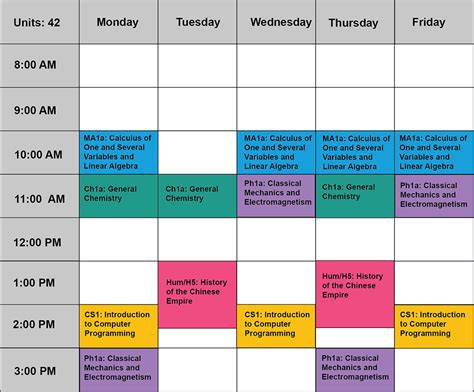Choosing the right classes for your freshman year of college is crucial. It can set the tone for your academic journey, ensure you’re on track to graduate on time, and provide a solid foundation for your future career. With so many options available, it can be overwhelming to know where to start. To help you make informed decisions, we’ve compiled a comprehensive guide to selecting the best classes for your freshman year.

Common Course Requirements for Freshmen
Most colleges and universities require all freshmen to complete certain foundational courses. These typically include:
- English Composition: Develops critical thinking, writing, and communication skills.
- Mathematics: Covers fundamental concepts in algebra, calculus, or statistics, depending on your major.
- Natural Sciences: Introduces concepts from biology, chemistry, or physics.
- Social Sciences: Explores topics such as history, sociology, or political science.
- Humanities: Provides an introduction to literature, art, music, or philosophy.
Choosing Electives: Explore Your Interests
In addition to required courses, you’ll likely have the opportunity to choose elective courses. This is a great time to explore your interests, discover new subjects, and gain valuable skills. Consider the following factors when selecting electives:
- Major: Choose electives that complement your intended major and provide additional knowledge or skills.
- Career goals: Determine which electives would be beneficial for your future career aspirations.
- Personal interests: Explore subjects that you’re genuinely passionate about and that will enrich your overall experience.
Recommended Classes for Specific Majors
Science and Engineering Majors:
- Chemistry 101
- Physics 101
- Calculus 101
- Introduction to Computer Science
Business Majors:
- Principles of Accounting
- Introduction to Microeconomics
- Business Statistics
- Fundamentals of Marketing
Humanities and Social Science Majors:
- World History
- Psychology 101
- Sociology 101
- Introduction to Literature
Tips for Selecting Courses
- Meet with an advisor: Your academic advisor can provide personalized guidance and help you create a schedule that meets your needs.
- Review course descriptions: Carefully read the course descriptions to understand the content, requirements, and workload.
- Attend orientation: Many colleges host orientation sessions that provide information about course selection and registration.
- Consider your strengths and weaknesses: Choose courses that align with your academic abilities and interests.
- Don’t overload your schedule: Start with a manageable course load that allows you to succeed academically and balance other activities.
Creative New Word: “Experientialize”
To help you generate ideas for electives, consider the concept of “experientializing” your education. This means seeking out courses that provide hands-on experiences, internships, or research opportunities. Experiential learning can enhance your skills, broaden your perspectives, and make your learning more engaging.
Useful Tables
Table 1: Common Course Requirements for Freshmen
| Course | Purpose |
|---|---|
| English Composition | Develops critical thinking, writing, and communication skills. |
| Mathematics | Covers fundamental concepts in algebra, calculus, or statistics, depending on your major. |
| Natural Sciences | Introduces concepts from biology, chemistry, or physics. |
| Social Sciences | Explores topics such as history, sociology, or political science. |
| Humanities | Provides an introduction to literature, art, music, or philosophy. |
Table 2: Recommended Classes for Specific Majors
| Major | Recommended Electives |
|---|---|
| Science and Engineering | Chemistry 101, Physics 101, Calculus 101, Introduction to Computer Science |
| Business | Principles of Accounting, Introduction to Microeconomics, Business Statistics, Fundamentals of Marketing |
| Humanities and Social Science | World History, Psychology 101, Sociology 101, Introduction to Literature |
Table 3: Tips for Selecting Courses
| Tip | Explanation |
|---|---|
| Meet with an advisor | Your academic advisor can provide personalized guidance and help you create a schedule that meets your needs. |
| Review course descriptions | Carefully read the course descriptions to understand the content, requirements, and workload. |
| Attend orientation | Many colleges host orientation sessions that provide information about course selection and registration. |
| Consider your strengths and weaknesses | Choose courses that align with your academic abilities and interests. |
| Don’t overload your schedule | Start with a manageable course load that allows you to succeed academically and balance other activities. |
Table 4: Creative New Word for Electives
| Term | Definition |
|---|---|
| Experientialize | Seeking out courses that provide hands-on experiences, internships, or research opportunities. |
Conclusion
Choosing the right classes for your freshman year of college is a critical step in your academic journey. By considering your major, career goals, interests, and strengths, you can create a schedule that sets you up for success. Remember to consult with your advisor, review course descriptions carefully, and don’t hesitate to explore new subjects through electives. Your freshman year is a time to learn, grow, and discover your passions. Make the most of it by choosing courses that will inspire you, challenge you, and prepare you for the future.
